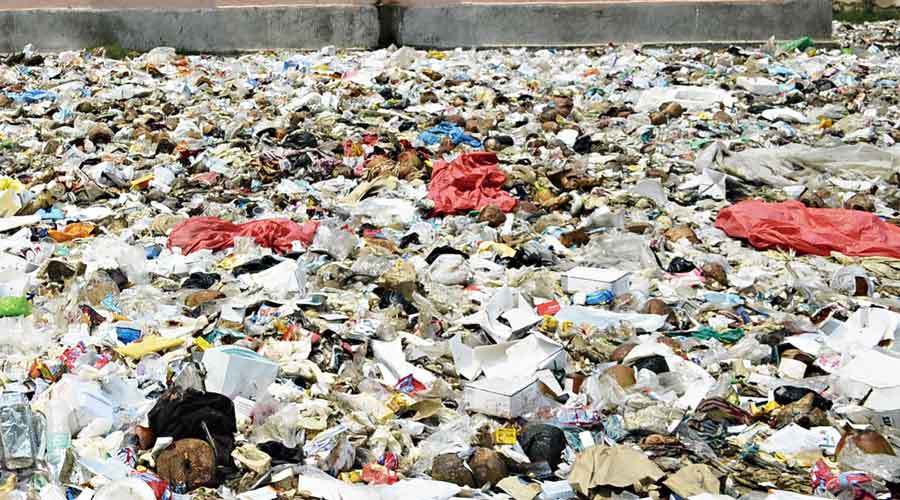Kolkata Municipal Corporation (KMC) is writing to residential complexes that produce more than 100kg of waste daily, asking them to prepare for managing the waste by themselves because the civic body will gradually stop collection of waste from the complexes.
The Solid Waste Management Rules 2016 require all bulk waste producers — buildings standing on an area more than 5,000sq m — to segregate waste at source, compost biodegradable waste and send the recyclable waste to recycling units, a senior KMC official said.
The KMC’s solid waste management bye-laws framed subsequently identified properties that generate more than 100kg of solid waste daily as bulk generators.
Bulk waste generators are usually large restaurants, hotels, hospitals, malls, commercial complexes and big residential complexes.
The official said nearly 40 per cent of the 4,500 tonne solid waste generated daily in Kolkata comes from bulk waste generators.
“Bulk waste generators have to install compost machines so that the biodegradable waste can be composted. They will be responsible for transporting recyclable items (like some kinds of plastic, metal and paper items) to the recycling units,” said Debabrata Majumdar, mayoral council member in charge of the KMC’s solid waste management department.
The civic body will only collect inert waste, which can be neither composted nor recycled, from housing complexes. The inert waste will be sent to the landfill site of Kolkata.
The section “Duties of waste generators” in the 2016 rules says “all resident welfare and market associations shall… in partnership with the local body ensure segregation of waste at source by the generators as prescribed in these rules, facilitate collection of segregated waste in separate streams, handover recyclable material to either the authorised waste pickers or the authorised recyclers”.
“The bio-degradable waste shall be processed, treated and disposed of through composting or bio-methanation”.
Most housing complexes in the city now collect unsegregated waste in containers. The KMC’s vehicles pick up the waste and transport it to the landfill site.
M.V. Biju, secretary of the residents’ welfare association of South City on Prince Anwar Shah Road in south Kolkata, told The Telegraph on Sunday that they had planned to roll out a pilot project of segregating waste at source across five floors of one of the towers in the complex.
“It is true that we do not segregate waste at source yet, but we have already decided to roll out a pilot project soon. This will allow us to know what more resources we will require,” said Biju.
Composting and transporting recyclable waste will be done later, following talks with the KMC.
The civic body has already sent letters to around 100 housing complexes. Some of the housing complexes have written back saying they did not produce more than 100kg of daily waste.
“We will inspect a housing complex thrice. Before the first inspection, we will inform them. Then there will be a surprise check. The third visit will be on a holiday to check whether the complex is producing more than 100kg of solid waste,” a senior KMC official said.
